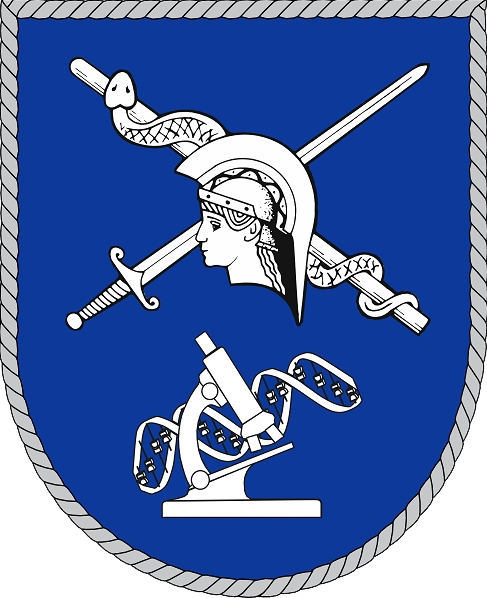Internationale Biosicherheit
Bundeswehr Institute of Microbiology is currently implementing projects within the German Biosecurity Programme of the Federal Foreign Office in
>> Georgia Flyer Georgia
>> Uzbekistan Flyer Uzbekistan
>> Ukraine Flyer Ukraine
>> Tunisia Flyer Tunisia
>> G5 Sahel region Flyer G5 Sahel
German Biosecurity Programme
The G7 initiative "Global Partnership against the Proliferation of Weapons and Materials of Mass Destruction" was launched in 2002 at the G7 Summit in Kananaskis, Canada. It contributes to reducing nuclear, chemical, biological and radiological proliferation risks in the world. In particular, the improvement of biosafety & biosecurity has been identified as a priority under this initiative in recent years.
In 2013, the Federal Foreign Office initiated the "German Biosafety and Health Security Partnership Program". It aims to reduce biosafety risks and build and improve needed biosafety capacities worldwide. Following an evaluation in 2016, the project was extended as the German Biosecurity Programme. The German Biosecurity Programme is currently in its fourth funding period (2023 - 2025).
Bacteria, viruses, and biological toxins can be used by state and non-state groups alike for peaceful but also for terrorist purposes according to the dual use principle. The objectives of the German Biosecurity Programme are therefore in particular the reduction of the risk of spreading biological agents (biosafety & biosecurity), the establishment of systems for the early detection of unusual disease outbreaks (surveillance) as well as the detection and characterization of dangerous pathogens. In addition, the awareness of the partner countries for biological hazards is to be improved (awareness raising) and the expertise of the national partner institutions is to be strengthened (capacity development).
Together with the Deutsche Gesellschaft für internationale Zusammenarbeit (GIZ) GmbH, the Bundeswehr Institute of Microbiology implements the following international projects within the framework of the German Biosecurity Programme:
- Establishing a biosafety & biosecurity network in the Caucasus region (Georgia, Azerbaijan and Armenia: since 2013).
- Biosafety initiative for zoonotic disease risk management near the EU border (Ukraine: since 2016).
For the new program phase, two projects initiated under the German Enable & Enhance Initiative has been included in the German Biosecurity Programme:
- Security cooperation on biological threats in G5 Sahel countries (Mali, Mauritania, Burkina Faso, Niger, Chad: since 2017).
- Security cooperation on biological threats in Tunisia (since 2016).
The project implemented within the European Union Chemical, Biological, Radiological and Nuclear Risk Mitigation Centres of Excellence (EU CBRN CoE) initiative of the European Commission (2020 - 2022) will be continued within the German Biosecurity Programme:
- Strengthening Biosafety & Biosecurity Capacities in Uzbekistan and Central Asia.
Completed projects:
- Establishing a German-Tanzanian network for diagnostics and epidemiology of infectious diseases caused by potential B agents (Tanzania: 2013 - 2016)
- German-French biosecurity initiative for Mali: mobile diagnostics to help with outbreaks of dangerous infectious diseases (Mali: 2014 - 2016)
- Establishment of a German-Kazakh network for diagnostics of infectious diseases caused by potential B agents (Kazakhstan: 2013 - 2022)
Enable & Enhance Initiative of the German government
Since 2011, the German government's Enable and Enhance Initiative aims to strengthen security structures abroad and prevent crisis development. The partner states will be strengthened to respond more effectively to crises. Reliable institutions in the partner states will take responsibility for security measures and thus contribute to stability in the long term.
The Bundeswehr Institute of Microbiology has been involved in Enable & Enhance projects in North and West Africa. In 2023, these projects have now been included in the German Biosecurity Programme.
Within Enable and Enhance Initiative the Bundeswehr Institute of Microbiology currently supports some of its long-term partners in micro-projects.

